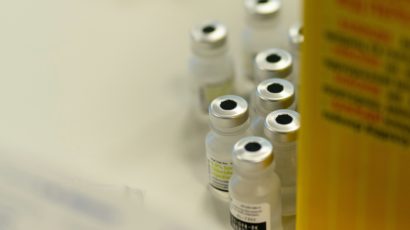Posted by Dr Michelle Wright
Has Covid made a comeback? Dr Michelle Wright explains…
Know people who’ve had COVID lately? I certainly do! With the Winter season in full swing, COVID is back onto our radars again.
In fact, the numbers of registered COVID cases have been increasing gradually since July but more significantly over recent weeks.
How many people currently have Covid?
It’s estimated that at least 4 in 10 people with a respiratory virus right now actually have COVID. This is backed up by an increase in the viral load detected in the country’s wastewater and also the fact that hospitalisations because of COVID infection are increasing.
But thankfully, the numbers of severe cases are not as high as they have been previously, and hospitals are not overwhelmed at the moment. For most, the virus is leading to milder symptoms. The more severe cases are being seen in the elderly, particularly those with chronic health conditions.
Of course, these figures aren’t surprising, viral infections do increase at this time of year.
And it’s also true that we haven’t been used to testing for infections ourselves at home when we’ve been unwell in the past, something that we got used to doing during the height of the pandemic with home testing kits.
What should I do this winter?
So, during this winter virus season, my message is to adopt a common-sense approach to protect yourself and others:
- If you are in one of the vulnerable groups for whom a COVID vaccine booster is recommended, make sure you’ve had this. That’s:
- All people over the age of 65.
- Anyone over the age of 16 with certain chronic health conditions, or with Down’s syndrome.
- And it’s also recommended that pregnant women discuss their personal situation with their treating doctor.
- And then if you are unwell with respiratory symptoms, it doesn’t matter what the cause is, you should stay at home and avoid contact with others, especially those who are vulnerable, until you feel better.
- If you really do need to go out, wear a mask and keep your distance from others.
And finally, if you are someone who is vulnerable and you do develop cold or flu-like symptoms, contact your doctor. If COVID is diagnosed, you can quickly be started on treatment.





